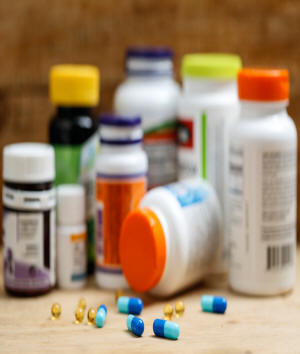References:
- Rautiainen, S., Manson, J. E., Lichtenstein, A. H., & Sesso, H.
D. (2016). Dietary supplements and disease prevention - a global
overview. Nature Reviews. Endocrinology, 12(7), 407–420.
https://doi.org/10.1038/nrendo.2016.54
- Cohen, P. A., & Bass, S. (2019). Injecting Safety into
Supplements — Modernizing the Dietary Supplement Law. The New
England Journal of Medicine, 381(25), 2387–2389.
https://doi.org/10.1056/NEJMp1913004
- Wallace, T. C. (2015). Twenty Years of the Dietary Supplement
Health and Education Act—How Should Dietary Supplements Be
Regulated? The Journal of Nutrition, 145(8), 1683–1686.
https://doi.org/10.3945/jn.115.211102
- Matsutomo, T. (2020). Potential benefits of garlic and other
dietary supplements for the management of hypertension. Experimental
and Therapeutic Medicine, 19(2), 1479-1484.
https://doi.org/10.3892/etm.2019.8375
- Mukattash, T. L., Alkhalidy, H., Alzu’bi, B., Abu-Farha, R.,
Itani, R., Karout, S., Khojah, H. M. J., Khdour, M., El-Dahiyat, F.,
& Jarab, A. (2022). Dietary supplements intake during the second
wave of COVID-19 pandemic: A multinational Middle Eastern study.
European Journal of Integrative Medicine, 49, 102102–102102.
https://doi.org/10.1016/j.eujim.2022.102102
- Kozhuharov, V. R., Ivanov, K., & Ivanova, S. (2022). Dietary
Supplements as Source of Unintentional Doping. BioMed Research
International, 2022, 8387271–18.
https://doi.org/10.1155/2022/8387271
